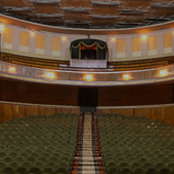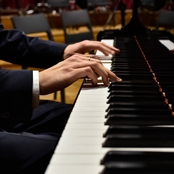NEWS&MEDIA
NEWS&MEDIA
This is a notice from Seoul Cyber University.
| 2022 Ministry of Culture and Arts Education Promotion Two Organizations Selected for 'Art Prescription on the Move' Program | |||
|---|---|---|---|
| Dt | 2022.04.13 | Hit | 45 |
|
2022 Ministry of Culture and Arts Education Promotion Two Organizations Selected for 'Art Prescription on the Move' Program - Cultural Arts Therapy Program Support Initiative by the Ministry of Culture, Sports and Tourism and the Korea Arts and Culture Education Promotion Service - Designation of Dementia Safety Center Collaboration and Mental Health Welfare Center Collaboration Sectors in the 2022 'Art Prescription on the Move' Initiative  [Photo] 2021 'Art Prescription on the Move' Soomsoom Team (Led by Yeojung Yoon, Department Head of Music Therapy) The university's Industry-Academia Collaboration Department, led by Park Ki-hoon, Head of Social Welfare Major, has been chosen for collaboration with Dementia Safety Centers and Mental Health Welfare Centers in the 2022 Cultural Arts Therapy Program, 'Art Prescription on the Move.' This program aims to facilitate community recovery and the creation of art therapy environments through music therapy, spearheaded by the Music Therapy Department. The Cultural Arts Therapy Program Support Project, jointly conducted by the Ministry of Culture, Sports and Tourism and the Korea Arts and Culture Education Promotion Service since 2015, has been rebranded as the 'Art Prescription on the Move' project. This transformation, prompted by the rising demand for psychological healing amidst recent social crises, seeks to facilitate improved communication with individuals in need and provide opportunities for them to overcome psychological challenges and reclaim their societal roles through art. This endeavor employs diverse artistic techniques grounded in counseling and psychological activities to aid individuals in overcoming psychological challenges and embracing community engagement through the innovative use of art. Yeojung Yoon, head of the Music Therapy Department, who oversees the project, stated, 'As we face an aging society, we are now able to provide our department's specialized music therapy programs tailored for elderly individuals at risk of mild cognitive impairment or dementia and for users of mental health welfare centers who have psychological wounds.' She added, 'Our program names are "Warm Memories through Art" (collaboration with Dementia Safety Centers) and "Warmth of Spring through Art" (collaboration with Mental Health Welfare Centers). In these times when many people are mentally and physically exhausted due to COVID-19, we hope that our art therapy will bring warmth to the local community. Last year, Department Head Yeojung Yoon took part in the '2021 Art Prescription on the Move' project, where she developed and distributed a non-face-to-face music therapy program called 'Stay On Music Stay On Me (SOMSOM)' along with an art experience (music) kit, achieving good outcomes. Meanwhile, our Music Therapy Department, the pioneer undergraduate program in the Seoul metropolitan area, aims to develop creative individuals with therapeutic competencies, driving the growth of music therapy in future societies. Our objective is to offer premier education meeting both national and international standards, shaping professionals capable of providing specialized health support through music therapy. In addition, we offer music therapy field practicum for certification and qualification acquisition of developmental rehabilitation service providers. Students can obtain a Bachelor's degree in Music Therapy and become certified as developmental rehabilitation service providers (music rehabilitation) upon graduation. We are the only music therapy program in Korea that operates a curriculum for therapeutic music ministry, training specialists in healing music for religious and missionary fields. After graduation, students can work as music therapists in various institutions such as hospitals, private organizations, municipal agencies, counseling centers, welfare facilities, elderly care facilities, alternative schools, after-school classrooms/counseling rooms in elementary and secondary schools, private clinics, religious institutions, and pursue further education in domestic and international graduate schools. Additionally, they can engage in activities such as running music therapy-related businesses, music production, event planning, music teaching, and music instruction. |
|||



























